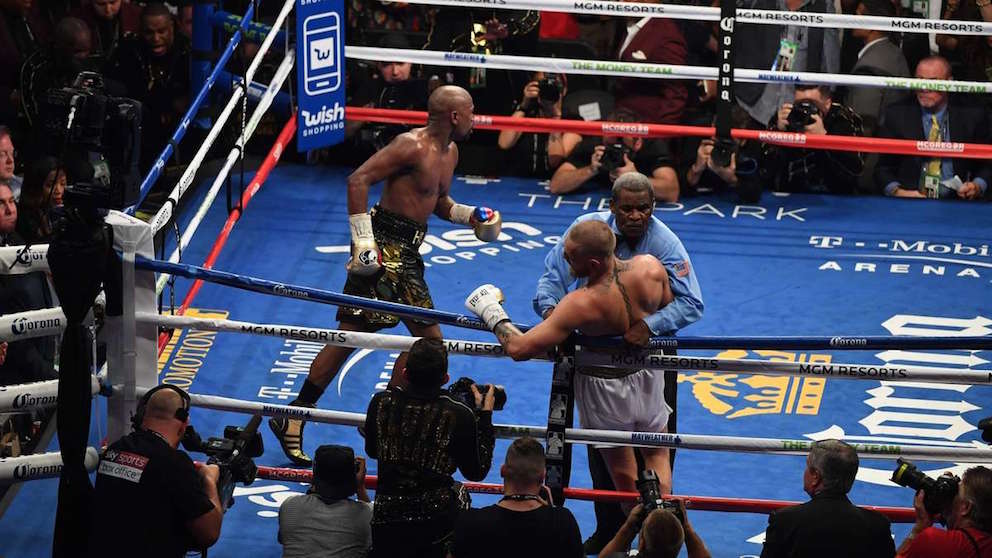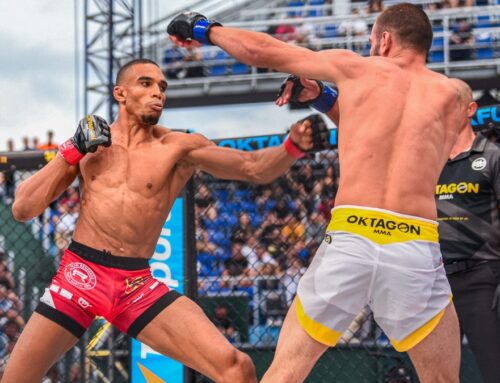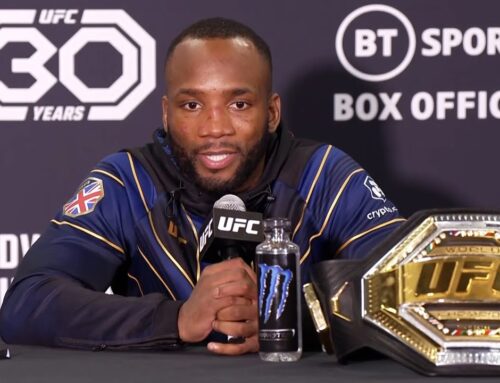Halfway through Saturday’s (August 26) ‘Money Fight’ between boxer Floyd Mayweather, 50-0, and Conor McGregor, 0-1, there came a moment when everything started to make sense in the ring – and therefore the world – and confusion made way for first reality and then sanity. Gone were the unknown elements and question marks that had allowed two superstars from different sports to come together in the name of making an ungodly amount of cash at the expense of an inquisitive and mostly ignorant audience. Gone, also, was any farfetched suggestion that Conor McGregor’s mixed martial arts background and all-round unpredictability might somehow give him a shot at conquering a boxing great unconquerable for 21 years.
By round six, the bout in Las Vegas was no longer some kind of must-see hybrid attraction. It was a boxing match between a boxer and a mixed martial artist (the very thing on the menu, no less), which finally, as the rounds progressed and McGregor tired, resembled less of a boxing match and more of well-attended sparring session for which both participants were being handsomely compensated.
UFC President Dana White’s unicorn (the name he gave to McGregor ahead of the fight) vanished into thin air, leaving us with a horse and an ice cream cone and the prevailing image of a forty-year-old Floyd Mayweather, the supposed non-puncher and smaller man, walking down and ushering out the door an exhausted but plucky trespasser unable to keep his hands up. Then, in the tenth round, he was out; the door slammed shut behind him.
McGregor, boxing’s unwelcome guest, still covered himself in glory and left with a goody bag. He was brave, first to pursue the challenge and meet Mayweather on his terms, and then in his approach to the impossible task. He started as he said he would, on the front foot, having taken the centre of the ring, and he tried, as best he could, to make an impression on Mayweather in the opening three minutes. He touched him with jabs, getting through with a surprising amount, and even landed a peach of a left uppercut at one point. He won the first and second rounds, something few expected beforehand.
Yet there remained a sense McGregor was landing jabs and winning the odd exchange only because Mayweather was allowing this to happen. Smile on his face, Mayweather was seemingly easing his way into the contest – in other words, doing very little himself – and sizing up a much larger man who danced to an off-kilter beat and rhythm.
Certainly, for Mayweather, this was the wise approach, for McGregor’s size and length, if nothing else, represented a headache of sorts. He was physical when they were close, awkward when at range. He whacked away at Floyd’s head and midsection when previous Mayweather opponents – boxers – would typically acquiesce in a clinch and allow the referee to break them up. Ultimately, he did things Mayweather wasn’t expecting him to do. He moved in a way others, those with better schooling, didn’t. He punched when he wasn’t expected to punch. He found success, albeit fleetingly, by way of beginner’s luck.
At least that was the case for a round or two. Quickly, though, Mayweather got to grips with McGregor’s rudimentary boxing style – touch with the jab, either to head or body, and then look to swing hopefully with a left – and went to work. Once this happened, the fight, as a competitive spectacle, was as good as over and McGregor’s initial hubris and exuberance subsided.
Mayweather, as was to be expected, boasted a composure McGregor lacked and jolted him time and time again with jabs and counter right hands. He switched angles and winded him with body shots. He proved size is no match for technique and experience. He demonstrated why a boxing ring has four sides and not eight. He did everything we knew he would do. Took his time; made it look easy.
But this was far from vintage Floyd Mayweather. Frankly, it didn’t need to be; the half-arsed work of an ageing, faded, slowing and perhaps ill-prepared Mayweather was enough to expose McGregor as a boxing neophyte. Combinations, for instance, weren’t necessary; a watertight defence wasn’t necessary; even his jab, a measuring stick he has used to defuse some of the best boxers of the modern era, wasn’t necessary. In fact, all a 40-year-old Mayweather required, in terms of offence, was a basic right cross and left hook, power punches he occasionally utilised to wobble McGregor, and the pressure of a seasoned professional, something that sapped McGregor’s energy, had his mind shrouded in doubt and would eventually prove his undoing.
Sensing a UFC champion was in desperate need of a takedown, Mayweather pressed forward, caring not whether he took a punch in return, and found no defence to anything he threw. Jabs caught McGregor’s chin up in the air. Right hands pinged his head back. Hooks threatened to topple him sideways. McGregor, meanwhile, kissed goodbye to the strength in his legs and the snap in his punches and, throughout the second half of the bout, resorted to touching – yes, touching – Mayweather with prods and pokes whenever the two found themselves in punching range.
It was a strange spectacle to behold. Stranger than all that had come before it (and that’s saying something). Stranger than the image of Mayweather and McGregor in a boxing ring receiving their instructions from referee Robert Byrd. Stranger than the concept of the fight itself. Because here we were, in the thick of the action, watching Conor McGregor, he of the so-called ‘touch of death’, the one who supposedly boasted an edge in punch power, sheepishly navigating his way around the boxing ring, all the while tapping away at Floyd Mayweather as if to do more than that – to generate power – would somehow wake the bear and lead only to more punishment. It was barely a fight at this stage; if, indeed, that had ever been the case. Now it just seemed unfair. It was Mayweather playing the disciplinarian father and McGregor succumbing to the role of unruly child, his forehead held at arm’s length.
It needed to end. It needed to end for the sake of Mayweather’s reputation and also that of boxing. It needed to end for McGregor’s safety. It needed to end most of all, though, because the charade – this whacky and cynical experiment that made lots of people lots of money but achieved not much else – had run its course and was now begging to be put out of its misery; the monster needed to be put down.
Which is precisely why Mayweather’s finish in round ten, as elementary as any he has mustered in a 50-bout professional career, was greeted not by surprise, satisfaction or even celebration but instead by an almighty sigh of relief from all who had found themselves caught up in something that was only ever going to end one way.
They all won and nobody got hurt.
Maybe that was the idea. Maybe that’s why it seemed so strange.






